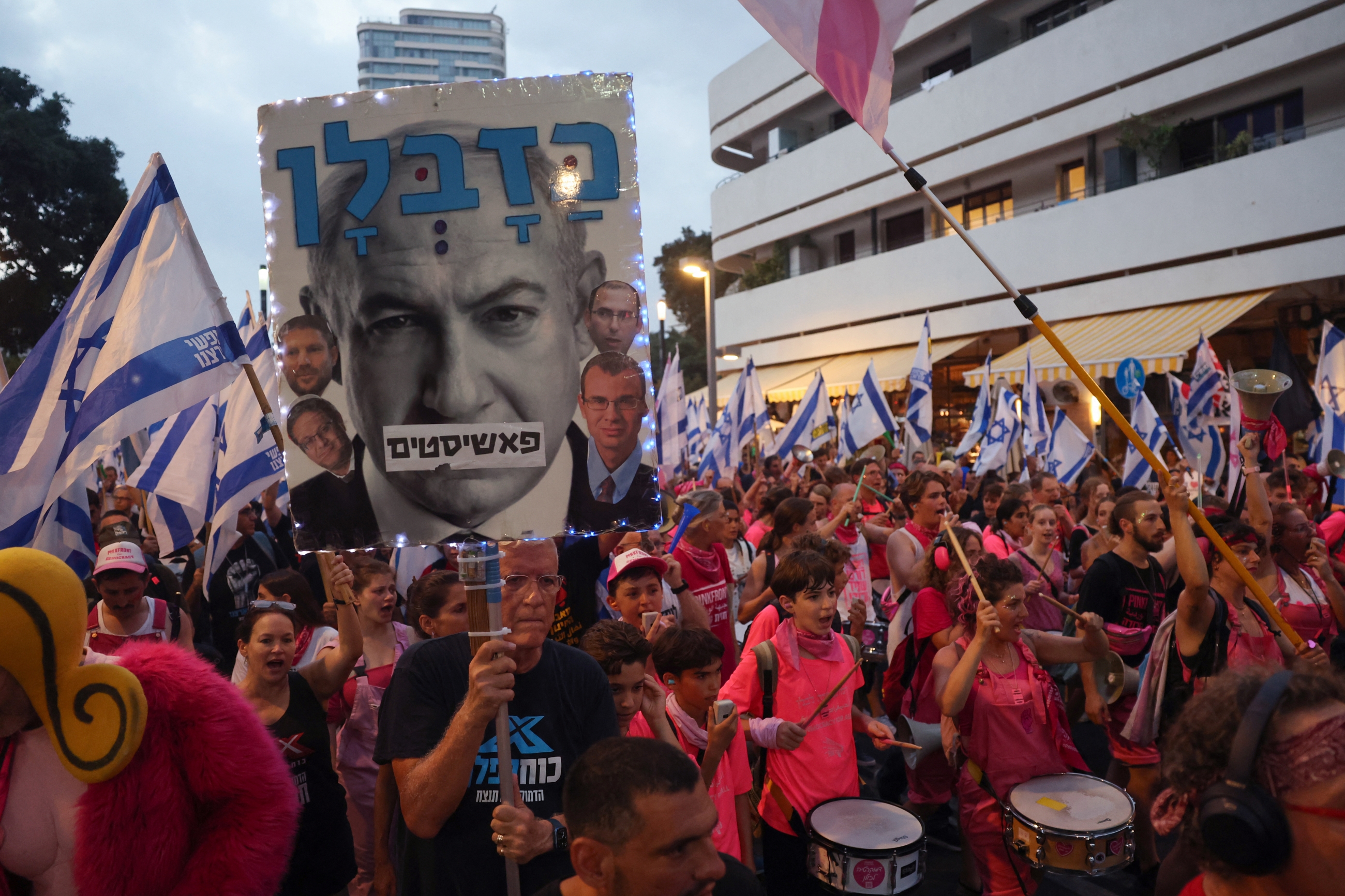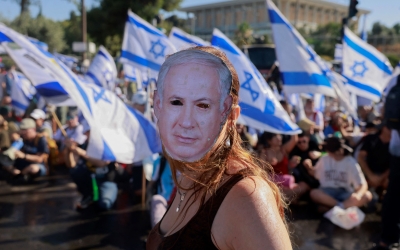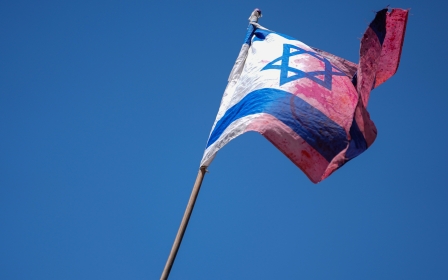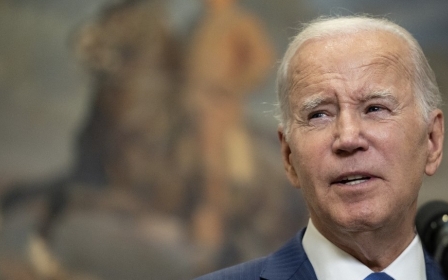Israel: Protesters vow to keep pressure on Netanyahu until judicial overhaul shelved

Thousands of Israelis took to the streets of Tel Aviv on Saturday to protest the government's controversial judicial overhaul plans.
Since the government unveiled the reform package in January, tens of thousands of Israelis have joined weekly demonstrations in what has turned out to be the biggest protest movement in the country's history.
While protests have rocked many cities, the epicentre has been the commercial hub of Tel Aviv, where protesters have rallied every Saturday against Prime Minister Benjamin Netanyahu's government.
"Despite months of protests, things are not going the way we wanted as one important part of the judiciary overhaul has been passed a few weeks ago," protester Ben Peleg, 47, told the AFP news agency.
"But if we continue to apply pressure on the streets, there is a possibility that we can still stop these changes."
New MEE newsletter: Jerusalem Dispatch
Sign up to get the latest insights and analysis on Israel-Palestine, alongside Turkey Unpacked and other MEE newsletters
Last month, the Israeli parliament voted to limit the so-called "reasonableness" law. The legislation would prevent the Supreme Court from striking down government decisions on the basis that they are "unreasonable".
Earlier this year, the Supreme Court revoked the appointment of Aryeh Deri, a leader of the ultra-Orthodox Shas party, from serving in Netanyahu's government on the grounds that it was "extremely unreasonable."
Ten of 11 judges disqualified Deri from serving, citing his conviction last year for tax offences.
Proponents say the current "reasonability" standard gives unelected judges excessive powers over decision-making by elected officials.
Palestinians arrested
Netanyahu's coalition government, which includes far-right and ultra-Orthodox Jewish parties, argue the reforms are necessary to rebalance the relationship between elected officials and the judiciary.
Opponents, however, accuse Netanyahu, who has been fighting corruption charges in court, of a conflict of interest.
Several petitions have been filed at the Supreme Court, with hearings set to be held in September.
Other proposed changes include allowing the government a greater say in the appointment of judges.
According to polls, almost a quarter of Israelis have participated in some form of protest since the demonstrations began.
Ratcheting up the pressure on Netanyahu's government has also been the thousands of military reservists who have declared their refusal to serve if the bills are passed.
The overwhelming majority of Palestinian citizens of Israel, however, have seldom attended the protests, and argue that discriminatory laws will continue to be passed against them whatever the outcome.
"For Palestinian citizens of Israel, the judicial system has never been seen as one that offers any protection against discriminatory laws and a system that privileges one group of people over another," Abeer Baker, a Palestinian human rights lawyer, wrote in an op-ed for Middle East Eye last month.
The Jerusalem Post reported that ahead of the protest, three Palestinians were arrested and taken into custody for questioning.
Middle East Eye delivers independent and unrivalled coverage and analysis of the Middle East, North Africa and beyond. To learn more about republishing this content and the associated fees, please fill out this form. More about MEE can be found here.





